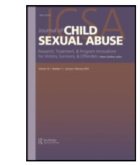 Sept. 24, 2012
Sept. 24, 2012
The February 2012 special issue of the Journal of Child Sexual Abuse is devoted entirely to “Contested Issues in the Evaluation of Child Sexual Abuse Allegations.”
Ritual-abuse holdouts Kathleen Coulborn Faller and Mark D. Everson use the issue to vigorously push back against calls for greater diagnostic skepticism.
The object of their displeasure is “The Evaluation of Child Sexual Abuse Allegations: A Comprehensive Guide to Assessment and Testimony” (2009), edited by the late Kathryn Kuehnle and Mary Connell. Contributors to the Kuehnle-Connell volume advocate more reliance on forensic science and less on “unverified methods or conjecture” of the kind that enabled prosecution of the Edenton Seven. By contrast, Everson and Faller can be counted on to stretch the bounds of prosecution-worthy evidence, from finding “clinical usefulness” in anatomical dolls to granting universal credibility to child-witnesses.
From Everson’s response in the journal:
“Many critics of current forensic practice (emphasize) specificity over sensitivity…. Specificity (minimizing inclusion of false cases) and sensitivity (maximizing inclusion of true cases) are counterbalancing indices of decision accuracy. Favoring specificity over sensitivity means that overdiagnosing (child sexual abuse) is considered a more serious concern than failing to substantiate true cases of abuse….”
Yes, I’ll admit it: I consider the perils of overdiagnosis – putting innocent people in prison – much worse than those of underdiagnosis – letting a possible abuser go free, at least temporarily. However much Everson and Faller might wish otherwise, our system of justice does stipulate “reasonable doubt.”
